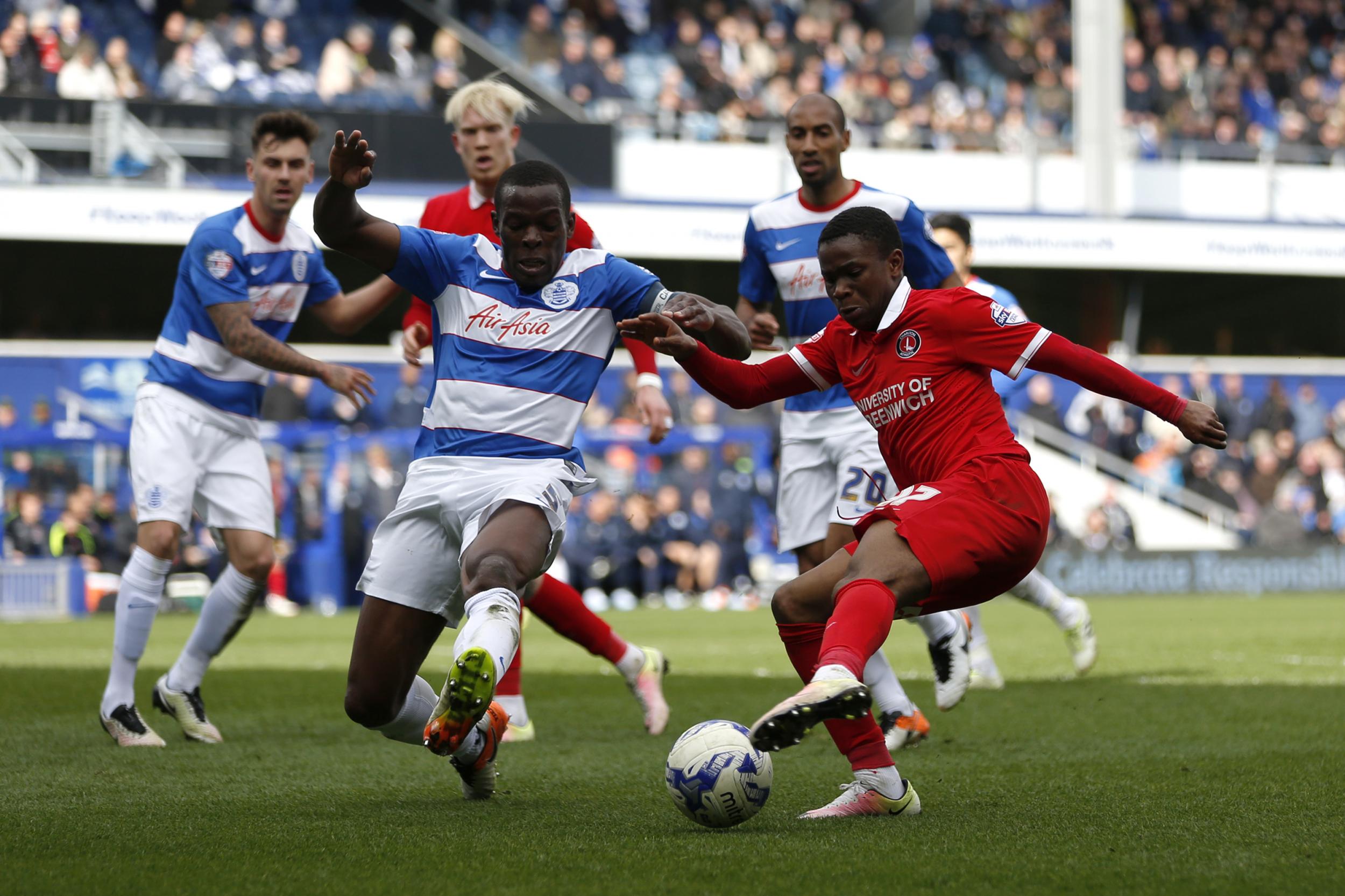‘Joe Gomez was always going to be special’: Inside Charlton’s immensely productive talent factory
The Charlton Athletic academy may have produced a Champions League winner in Gomez, but he is just one glittering talent among many unearthed at Sparrows Lane in recent years

Charlton goalkeeper Dillon Phillips recalls a time in Joe Gomez’s career which must seem a lifetime ago after his exploits over the last few seasons. “I remember being at an FA Youth Cup first round game away at Soham Town Rangers, and Joe was meant to be starting that night,” he says. “He got ready, got changed, did the warm-up and then the captains and the managers exchanged the team sheets. Joe was on the team sheet, but it turns out that he was too young to be involved. He was only 14… even just training with him when he was 14 or 15 years old, you knew that he was going to go on to something special.”
Gomez had an unconventional journey through the Charlton academy. Having been in the club’s pre-academy with the under-8s, he was initially overlooked at under-9s level after he was judged to be, in the words of several coaches, “flat-footed”. After a spell in their auxiliary development centre, he returned and his rapid physical development saw him accelerated through the age groups. At the age of 13, he made his debut for the under-18s. By the age of 15, he was a regular fixture in the older age groups. At 17, he made his debut for the first team. At 18, having also impressed in the England youth set-up, he signed for Liverpool for £3.5m and, at 22, he was a Champions League winner. By 23, it’ll be the Premier League.
Given that Charlton spent much of the last decade in League One, for the club’s academy to have produced a European champion at only 22 is a remarkable achievement. “To see Joe winning the Champions League, to see him lifting the Club World Cup, to see him playing for England, that is absolutely priceless,” says Adam Lawrence, Charlton’s head of coaching and right-hand man to academy manager Steve Avory. “It’s something we all celebrate.”
Still, while his name might be up in lights, Gomez is just one of many recent success stories which have been written at Charlton’s Sparrows Lane training ground. There is Joe Aribo, who signed for Rangers last summer; Ademola Lookman, who is currently with RB Leipzig in the Bundesliga; Ezri Konsa, who is finding his feet at Aston Villa after a season with Brentford, and that’s not even the half of it. Charlton struggle to play a game in the Championship without an impromptu reunion with a former academy graduate, whether it’s Kasey Palmer at Bristol City, Karlan Grant at Huddersfield, Jordan Cousins at Stoke or Anfernee Dijksteel at Middlesbrough.
By any club’s standards, Charlton’s academy has been immensely productive lately. Considering that the club was in a difficult place under the profoundly unpopular ownership of Roland Duchatelet until their promotion against the odds last season – followed by his eventual departure this January – the academy’s achievements seem even more impressive. Their success has not gone unnoticed, with their coaches asked to collaborate with the Premier League and to give demonstrations for the Scottish FA last year. So what’s powering their conveyor belt of talent? It might seem counterintuitive, but their difficulties under Duchatelet may have been a factor.

“I think there were times when possibly the circumstances of the club – the club being in League One, for example, for quite a number of years – meant that various managers had to look at the academy simply because of the budget and the model that the previous owner wanted,” says Avory. That model turned youth development and player sales into the club’s economic lifeblood, though the academy’s good work was often offset by highly erratic first-team recruitment. Nonetheless, with the first team floundering, the kids were given the chance to impress. “That opportunity was there for the youngsters, for sure, and they grabbed it, as they are still doing currently.”
Having made his own breakthrough during the Duchatelet era and since secured his place as Charlton’s first choice between the sticks, Phillips is in full agreement. “I’m a massive believer in opportunity,” he says. “Over the last however many years, maybe not as far back as Jonjo [Shelvey, who left Charlton in 2010] and people like that but more recently, there have been more opportunities for the youngsters because of the budget not being so big and the club not being able to sign £20m players like in the Premier League.”
Psychologically, it’s a huge motivating factor for young players to know that, unlike at many Premier League clubs, opportunities are there for the taking at Charlton. “We’ve always had it as a mantra really, when we do look to sign players [for the academy], that it’s always about the pathway of getting to our first team,” says Jason Euell, Charlton Under-23s head coach. “As much as it’s brilliant being at some clubs because of the name they have, there’s not always that pathway of getting to the first team. With us, that’s what we’ve always done.”
Euell is a fitting role model for youngsters looking to break into the first team at the Valley, given he made 170 appearances for Charlton over two spells during his playing days. For him, developing players is often about circumstance. “It’s about timing,” he adds, pointing out that a mid-season injury crisis this term has provided unexpected openings for the latest generation of youngsters. One of his under-23s players, Josh Davison, scored his first senior goal after being drafted in against West Brom in mid-January, while midfielders Alfie Doughty and Albie Morgan were recalled from loans to fill holes in the squad. They have seized their chance, while other academy players like Ben Dempsey and Brendan Sarpong-Wiredu have also begun to make an impression.
There are other circumstantial factors which have helped Charlton’s academy to thrive. Their catchment area includes neighbourhoods like Lewisham, Brockley, Catford, Lambeth and Camberwell, places which have a reputation for fostering young footballers. “People talk about London, and south London in particular, as a hotbed of football and for young talent,” says Lawrence. It helps that both he and Euell grew up south of the river and understand where their players are coming from. “That’s my upbringing and I know that Jason is similar in terms of where he’s from. So you understand the type of kids who come here and the areas where players may be.”
Then there are the things which Charlton’s academy staff can actively affect, like recruitment. With the help of Bert Dawkins, the senior academy scout, they recruit creatively and are not afraid to look to non-league or give a second chance to late developers who may have slipped through the cracks.
Aribo, for instance, was brought in after a season with Staines Town in the Conference South, while Lookman was spotted in an end-of-season game while playing for a county team drawn from local Sunday league sides. There is still an element of circumstance involved and recruitment can often come down to the sort of player that an age group is lacking. “Joe Aribo, at that time, that was the type of player I needed,” says Euell. “I knew that we needed a midfielder with a bit of presence. If it was a left-footed one, even better. [Former Wimbledon teammate] Marcus Gayle rang me, he was the manager at Staines at the time, and said: ‘I’ve got this boy, central midfielder, skinny like you at the same age. What do you think?’”
Circumstance aside, there is also an ethos at the academy which sets it apart. “I think a lot of academies will say that they’re into holistic development of players, and it’s all well meaning,” says Avory. “But it’s about how you get down to the nitty gritty, really.” Avory, a former PE teacher, is serious about discipline, timekeeping, manners and work ethic, while there are old-school touches like the fact that all players from under-9s to under-18s have to wear black boots. If that seems incidental, there is also the fact that he expects his coaches to make connections with players’ families and to treat them as human beings as opposed to just athletes or assets.

“One thing that I insist on is that the coaches work outside their remit,” he says. “They’re not just here to deliver the session, they’re also here to get to know the player, find out about the personality and pay some attention to developing the person.” It helps that there has been such longevity among his staff. He has been in charge for almost 20 years, but he has worked alongside Lawrence for the last eight and Euell for a similar period while few of his coaches have been at Sparrows Lane for less than five. “There’s a continuity of learning there, a continuity of discipline and a continuity in terms of developing a culture,” he says.
That means that, perhaps more than most, Charlton’s academy staff are invested in their players. Euell is still in contact with Gomez and tries to provide him with mentoring from afar, while Lawrence will drop former academy players a text to congratulate them when they’re doing well or support them when they’re struggling. As much a source of pride as those who have left are the players who either decide to stay or come back. Having come through the youth ranks, long-serving defender Chris Solly is a one-club man who has made over 300 appearances for the club. Deemed too short at 16, Erhun Oztumer has come full circle after signing from Bolton Wanderers in the summer.
As for the academy’s importance to the club, whether under the new ownership or Duchatelet, it is indispensable. “Everybody in the game is aware of the fantastic reputation the club has in terms of developing players,” says Matt Southall, Charlton’s new chairman. “To maintain and build on that reputation is central to our plans.” One of the first priorities is to upgrade the facilities and achieve category one status. Meanwhile, as he recalls that game against Soham Town Rangers, Phillips nicely articulates the importance of the academy to future champions like Gomez. “Probably, if it wasn’t for Charlton, he wouldn’t be where he is now.”
Join our commenting forum
Join thought-provoking conversations, follow other Independent readers and see their replies
Comments